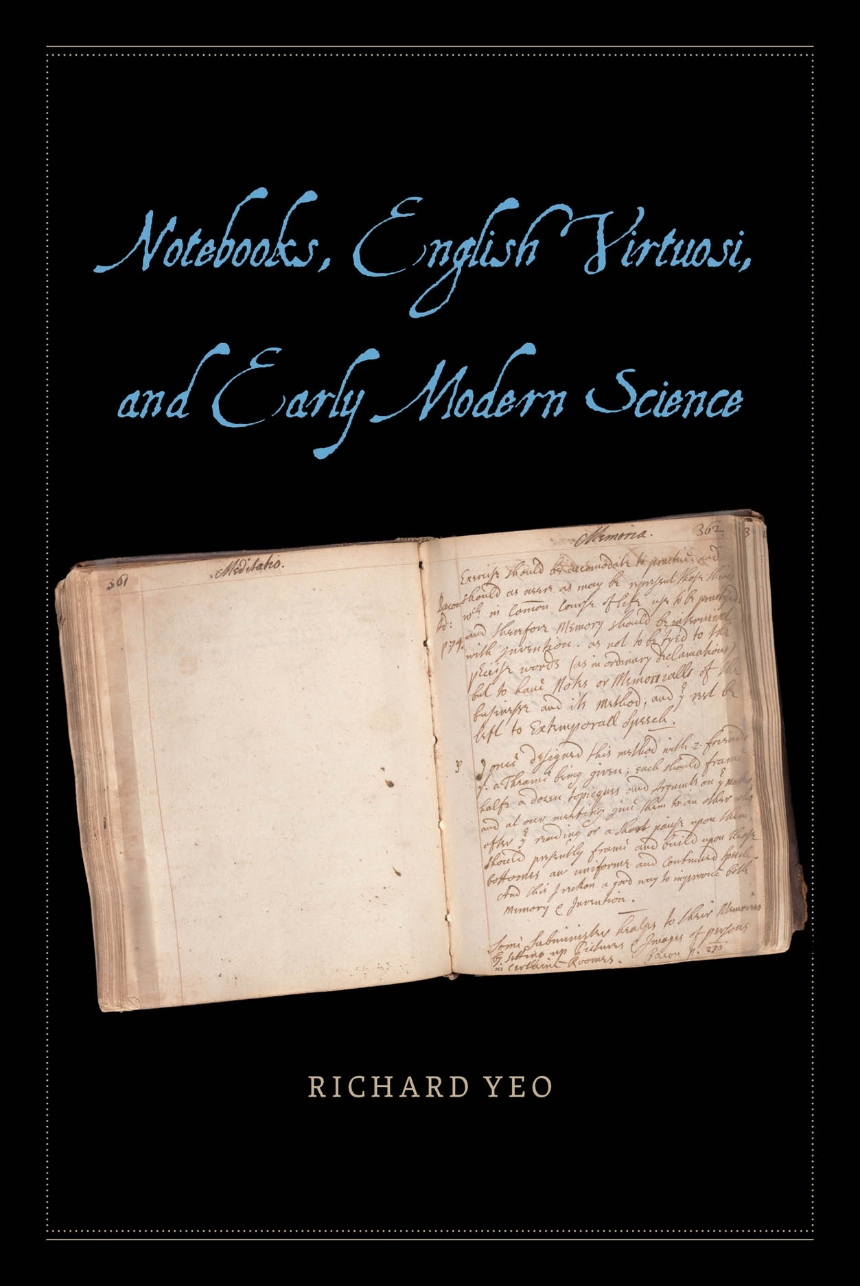Notebooks, English Virtuosi, and Early Modern Science
In Notebooks, English Virtuosi, and Early Modern Science, Richard Yeo interprets a relatively unexplored set of primary archival sources: the notes and notebooks of some of the leading figures of the Scientific Revolution. Notebooks were important to several key members of the Royal Society of London, including Robert Boyle, John Evelyn, Robert Hooke, John Locke, and others, who drew on Renaissance humanist techniques of excerpting from texts to build storehouses of proverbs, maxims, quotations, and other material in personal notebooks, or commonplace books. Yeo shows that these men appreciated the value of their own notes both as powerful tools for personal recollection, and, following Francis Bacon, as a system of precise record keeping from which they could retrieve large quantities of detailed information for collaboration.
The virtuosi of the seventeenth century were also able to reach beyond Bacon and the humanists, drawing inspiration from the ancient Hippocratic medical tradition and its emphasis on the gradual accumulation of information over time. By reflecting on the interaction of memory, notebooks, and other records, Yeo argues, the English virtuosi shaped an ethos of long-term empirical scientific inquiry.
384 pages | 17 halftones | 6 x 9 | © 2014
Guides, Manuals, and Reference: Books on Books
History: European History, History of Ideas
Physical Sciences: History and Philosophy of Physical Sciences
Reviews
Table of Contents
Editorial Notes
Preface
1. Introduction
2. Capacious Memory and Copious Notebooks
3. Information and Empirical Sensibility
4. Taking Notes in Samuel Hartlib’s Circle
5. Rival Memories: John Beale and Robert Boyleon Empirical Information
6. Robert Boyle’s Loose Notes
7. John Locke, Master Note-taker
8. Collective Note-taking and Robert Hooke’s Dynamic Archive
9. Conclusion
Acknowledgments
Notes
Manuscript Sources
Bibliography
Index
Preface
1. Introduction
2. Capacious Memory and Copious Notebooks
3. Information and Empirical Sensibility
4. Taking Notes in Samuel Hartlib’s Circle
5. Rival Memories: John Beale and Robert Boyleon Empirical Information
6. Robert Boyle’s Loose Notes
7. John Locke, Master Note-taker
8. Collective Note-taking and Robert Hooke’s Dynamic Archive
9. Conclusion
Acknowledgments
Notes
Manuscript Sources
Bibliography
Index
